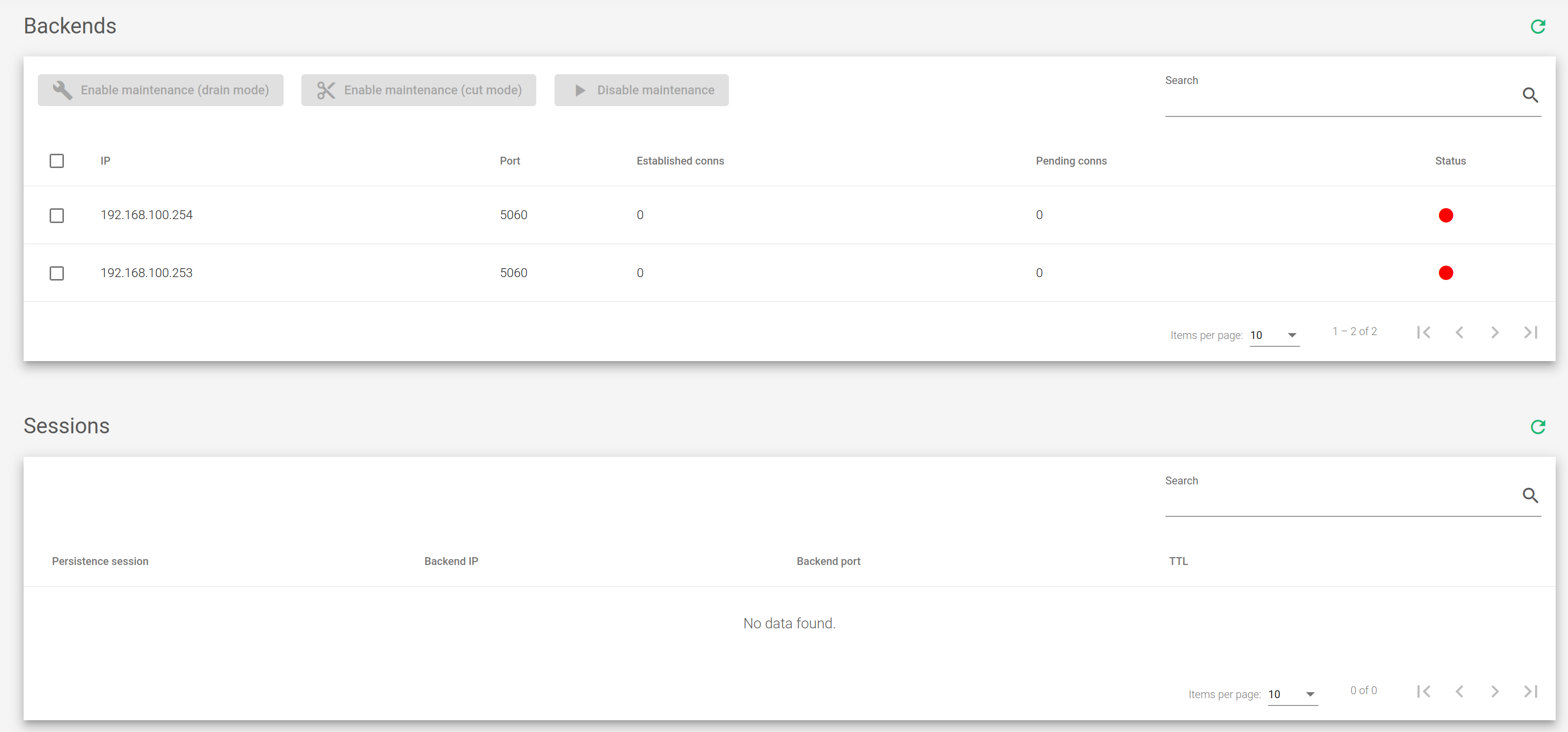Monitoring Farms Stats
This section shows every detail about farms and load balancing services statistics. It shows a table with the number of the latest Established and Pending connections for each GSLB and LSLB farm.
The table has the following columns:
Name. A name that identifies the farm.
Profile. Profile type, whether HTTP or L4xNAT.
Virtual IP. The virtual IP address used to receive the traffic.
Virtual Port. Port used by the load balancer to manage and distribute the traffic.
Established Conns. Confirmed connections to the farm. It doesn’t necessarily mean 1 connection per connected client.
Pending Conns. Connections that are not being served by the farm.
Status. Colored representations of farm availability:
- Green. Means UP. The farm is running and all backends are UP.
- Red. Means DOWN. The farm has stopped.
- Yellow. Means RESTART NEEDED. There are recent changes that need a farm restart to be applied.
- Black. Means CRITICAL. The farm is UP but there is no backend available or they are in maintenance mode.
- Blue. Means PROBLEM. The farm is running but at least one backend is down.
- Orange. Means MAINTENANCE. The farm is running but at least one backend is in maintenance mode.
Those color codes are the same all over the graph section. Read a more in-depth explanation about LSLB Farms.
Actions. This column allows expanding the farm stats view to a more detailed view.
- Show Backends. Displays a list showing clients connected to backends for every service defined on a farm.
Monitoring Backend Stats
The Backends table details the following information per connected client:
IP. The real server IP address.
Port. The port(s) number where the real server is listening.
Established conns. Established connections to the backend (only for LSLB farms).
Pending conns. Pending connections to the backend (only for LSLB farms).
Status. The latest health status of the backend: The status is represented using the following colors.
- Green bullet. Means Backend is running normally.
- Orange bullet. This means the Backend is in maintenance mode.
- Red bullet. Means the farm is UP but the backend is unreachable.
Those color codes are the same all over the graphical user interface. Find a better explanation in the LSLB Farms guide Section.
Actions. The needed actions for the LSLB backends are:
- Enable maintenance. The backend will be placed into maintenance mode.
- Drain mode. This means no more connections will reach the backend, but the established ones will continue without any interruption.
- Cut mode. This means all current connections are closed, and the backend will get into Maintenance mode immediately without accepting more connections.
- Disable maintenance. The backend will be available for new connections.
The Farm Sessions table details the following information per connected client.
Service. Name of the service to which the client is connected.
Persistent session. The type of session ID used. It may be an IP, a COOKIE, a farm profile, or a user name…
Backend IP. The Ip address of the backend managing the traffic.
Backend Port. The port of the backend through which the traffic flows.
TTL. The amount of time a packet is set to exist before being discarded by a session.
By default, the statistics will show a single sample of the connections found on farms and backends, but it is also possible to take samples every 10, 30, 60, and 120 seconds. You also can manually refresh using the refresh button at the right of the selector.

